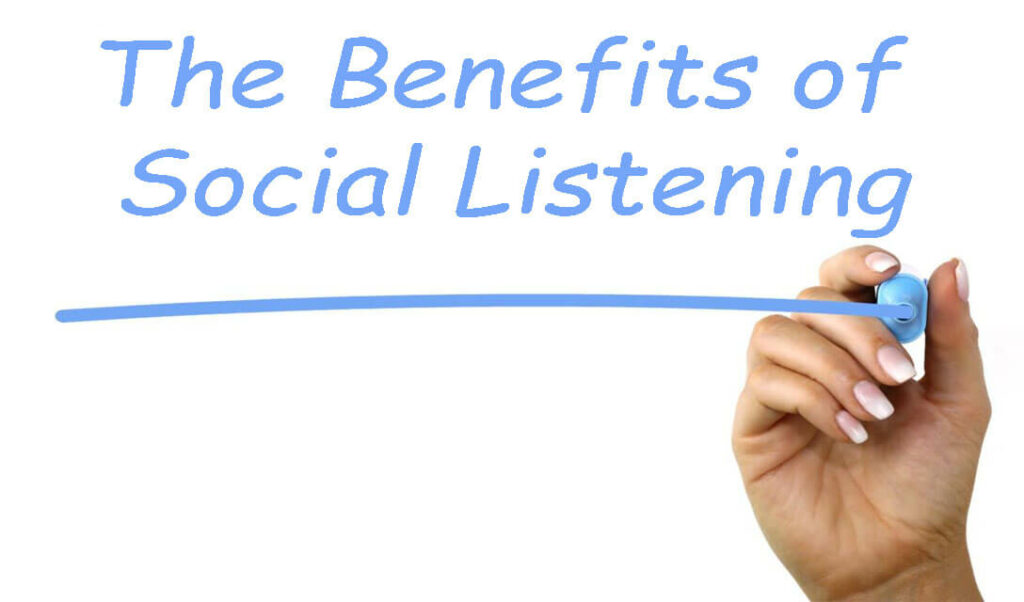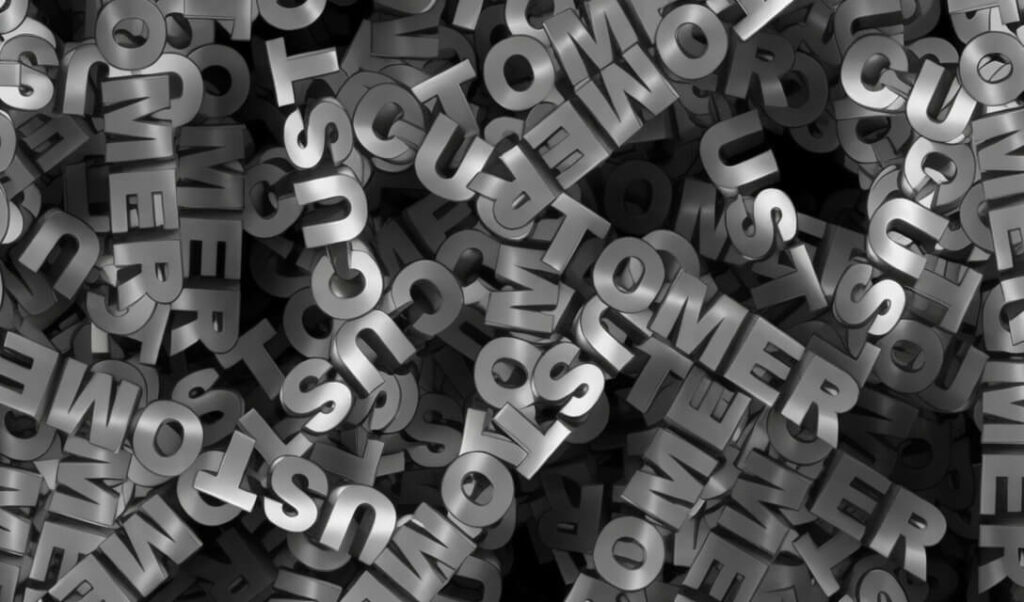The success of your business mainly depends on your ability to collect data from your competitors, other businesses, and potential customers. This valuable data can help inform decisions related to your product, customer service, social media, and content strategy.
The act of finding out what your online customers are saying about your brand or products is referred to as social media listening.
Social listening has numerous benefits. For starters, listening to your target audience gives you valuable insights about what they need and expect from you. Besides, reputation social media listening is valuable for maintaining a positive reputation online. Moreover, a robust audience listening strategy helps drive customer advocacy.
But how can social media listening increase customer advocacy and enhance your business online reputation? Further, how can brands improve their social media listening ability?
These are some of the questions we hope to answer in this article.
Let’s get started, shall we?
Tabla de contenidos
Social Media Listening: What Is It and Why It’s Important

Social media listening refers to monitoring and analyzing conversations on social media platforms to get an idea of what people are saying about your competitors, industry in general, your brand, customer service, products, or specific topic. Social, or audience, listening does not only mean monitoring the conversations of your loyal customers but also that of your target audience and competitors. Online conversations may refer to mentions, both positive and negative comments, and customer concerns.
Social listening is sometimes used interchangeably with social monitoring, and although the two are related, they aren’t similar.
So, shall we look at social listening vs social monitoring
While social listening looks at reasons why people are saying what they’re saying about your brand or products, social monitoring refers to what people are saying about your brand. Thus, social listening identifies brand conversations on a macro scale, while social media monitoring does it on a micro-scale.
The main goal of social media monitoring is to identify customer questions, complaints, and feedback and respond to them. The main aim of social media listening is to get to know your target audience and understand them at a deeper level so as to improve your product offering.
Social listening is important for any business that wants to grow its online presence. Social listening efforts help you understand your target customers better as you get actionable insights about their needs, potential issues, and preferences. It also helps improve customer relationships, customer service and enhances customer satisfaction.
Another importance of having a social listening strategy in place is that it helps with online reputation management. Social listening will further help you develop innovative products, identify market opportunities, and optimize your marketing campaigns
The Benefits of Social Listening

Your business will benefit greatly when you use audience listening as one of the strategies in your marketing campaigns. Some benefits you’ll reap from listening to your online audience are explained below.
Improves Your Brand’s Online Reputation
Social listening helps monitor mentions related to your brand that social media users have made.
Unfortunately, due to the vast number of social media posts made online, brand mention monitoring isn’t something you can do manually. The good news is that social listening tools will help you monitor all conversations, keywords, and hashtags related to your brand. You get to know what people say about your brand, and you will also get notified of any complaints and negative feedback.
Many brands’ online reputations have gotten ruined due to negative mentions made on social media. Most of these brands didn’t react on time or accordingly, which led to a negative reputation. With audience listening, you can identify potential issues beforehand and take the necessary measures to avoid negative mentions.
Further, your audience sentiments are one of the essential indicators of your online brand reputation. For instance, positive feedback is good for your brand but negative feedback is a red flag. And, if most of your customers give neutral feedback, you may want to come up with strategies to encourage them to make positive mentions.
Access to such insights will give you a clearer picture of your brand reputation on social channels and what you need to improve on.
Learn About Your Target Audience
Using social listening tools helps you understand your target audience better. To identify people who are going to become your loyal customers and brand advocates, it’s important that you focus your content and messages on the right audience.
Your brand messages should be valuable and relevant to your audience. Your content strategy should also be aimed at satisfying your audience’s needs.
From social listening, you can learn the following information that can help you fine-tune your products and content to your audience’s needs:
- What are your target audience behaviors, buying habits, and demographics
- Which social media platforms do your customers spend their time
- What topics do they talk about and which online conversations are they following or sharing
- What are their sentiments about your products, topics or conversations
Helps Monitor Your Competitors
Monitoring your competitors is important as it helps you answer questions such as:
- Which platforms are they active on?
- Which social media marketing strategies are they using?
- How successful is their content?
- What marketing campaigns are they running, and which ones are successful?
- What are their weaknesses and strengths?
- What are people saying about your competitors?
- What untapped opportunities exist that you can take advantage of?
All these insights will help you learn more about the competition and ways you can improve your products, social media strategy, and marketing campaigns.
Notably, competitor monitoring should be done with care.
So, why should you be careful about monitoring competitors?
First, if your competitors get to know that you’re collecting their data, they might view you as a threat which can damage your reputation in your industry. Besides, if you’re too fixated on what your competitors are doing, you might lose focus on the goals of your business. Having lots of data on your competitors might also give you a false sense of security, which can hinder your innovativeness and creativity.
How Can Social Media Listening Increase Customer Advocacy?

A major benefit of social media listening is increasing customer advocacy.
Customer advocacy refers to customers who give positive mentions or positive feedback about your brand. Such customers will defend your brand against negative mentions and recommend your products to others. Such customers are often referred to as brand ambassadors or customer advocates. These customers are not only loyal customers, but they also market your products to their family and friends.
Customer advocacy gives you a positive online reputation, increases profits, and improves customer loyalty.
Social media listening is an important business strategy that can help increase customer advocacy in the following ways:
Helps you understand your customers better
Audience listening helps you understand your target audience’s pain points, needs, and preferences. This can help you improve your products, content, and messages so that they become more valuable to them
Improves customer service
Social media listening helps you provide timely customer service since you get notified of any complaints and issues promptly. This helps improve customer experience and satisfaction, which in turn leads to more loyal advocates of your brand
Manage customer complaints
Social listening helps with crisis management. You can deal with issues before they get out of hand. Issues such as controversial statements and product recalls often occur on social media, and handling them promptly can prevent reputation damage and loss of revenue and customers
Strengthen relationships
Social media listening helps you identify people and businesses that are for your brand. This can help you establish meaningful relationships and partnerships. You can also identify loyal customers who can become micro influencers or advocates of your brand
Tips on Using Social Media Listening to Improve Your Brand Reputation
Now that you’re informed on ways you can use audience listening to improve your business reputation, here are tips you can use to improve your social media listening game.
- Make use of social listening tools such as Hootsuite, Brandwatch, Google Alerts, and Mention to get more insightful data about your audience
- Identify social media channels that your target audience is most active on and keep track of your audience interactions on them
- Always respond to mentions, feedback, comments, compliments, and complaints
- Identify relevant keywords, topics, hashtags and discussion related to your brand and industry
- Identify your competitors and follow them to get to know what they’re doing
- Analyze the actionable insights you have collected from customers, competitors, and other businesses and take action to enhance your brand reputation and encourage customer advocacy
Conclusion
Social media listening is monitoring online conversations made by customers, competitors, and businesses about your brand. Social listening helps improve your brand reputation since you can successfully respond to looming crises on time and offer your audience the best customer service.
If you haven’t leveraged the power of social listening, it’s about time you did. You’ll get a wealth of information on your target audience, brand and competitors
- How to Promote Your Tweets and Improve Twitter (X) Impressions - abril 22, 2024
- How to Go Viral On Twitter (X): A Guide For New Creators - abril 22, 2024
- How to Get Twitter (X) Followers Fast - marzo 7, 2024

